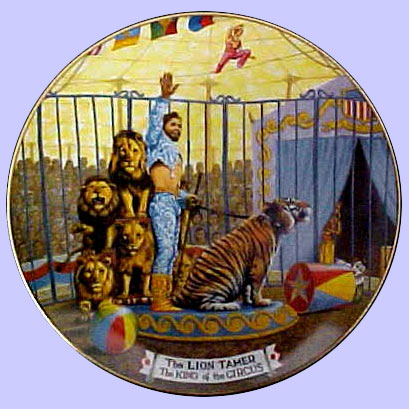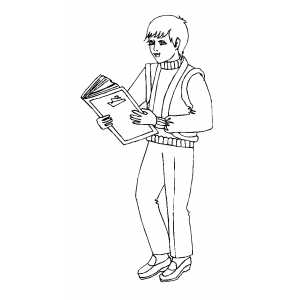Saturday, October 10, 2009
Tuesday, September 22, 2009
Wednesday, July 8, 2009
New National First Reader (NNR) - Lesson IV
Friday, June 12, 2009
McGuffey's Eclectic First Reader - Lesson I
Vocabulary:



Phoneme Families:
book
cook
hook
look
took
nook
brook
crook
shook
ear (long e) as in:
bear
pear
tear
wear
swear
ear (er, ir,or,ur) as in:
earn
learn
yearn
(heard, search, earth)
Click here to get the ebook.
Click here to link to the first grade handwriting script.
Here is what it looks like:

| Buchstaben Mini-Mappe für Gruenewald VA | ||
 | ||
- First Reader:Lesson XVII
- First reader: Lesson XVI
- First Reader: Lesson XV
- First Reader: Lesson XIV
- First Reader: Lesson XIII
- First Reader: Lesson XII
- First Reader: Lesson XI
- First Reader: Lesson X
- Penmanship practice paper
- McGuffey's 1836 First Eclectic Reader: Lesson I
- First Reader: Lesson II
- First Reader: Lesson III
- First Reader: Lesson IV
- First Reader: Lesson V
- First Reader: Lesson VI
- First Reader: Lesson VII
- First Reader: Lesson VIII
- First Reader: Lesson IX
Tuesday, May 5, 2009
McGuffey's Eclectic Primer: Lesson 1
The words for this lesson are:
Boy
Man
Hen
Top
Zechariah 8:4-6
"Thus saith the LORD of hosts; There shall yet old men and old women dwell in the streets of Jerusalem, and every man with his staff in his hand for very age. And the streets of the city shall be full of boys and girls playing in the streets thereof. Thus saith the LORD of hosts; If it be marvellous in the eyes of the remnant of this people in these days, should it also be marvellous in mine eyes? saith the LORD of hosts."
(A fun project to do with an adult's help)
Make your own top
Thursday, April 16, 2009
Poetry Lesson 3: The Lyric

by John Keats
Bright star, would I were stedfast as thou art---
Not in lone splendour hung aloft the night
And watching, with eternal lids apart,
Like nature's patient, sleepless Eremite,
The moving waters at their priestlike task
Of pure ablution round earth's human shores,
Or gazing on the new soft-fallen mask
Of snow upon the mountains and the moors---
No---yet still stedfast, still unchangeable,
Pillowed upon my fair love's ripening breast,
To feel for ever its soft fall and swell,
Awake for ever in a sweet unrest,
Still, still to hear her tender-taken breath,
And so live ever---or else swoon in death.
Thursday, April 9, 2009
Poetry Lesson 2: The Narrative

Narrative poetry is one of the oldest, and may be the oldest, forms of poetry. It's used to tell a story and can be either long or short. There are different types of narrative poetry. The most common are: epics, romances, and historical verse.
Epics are very long and have many parts; many are as long as a whole book. Some famous epic poems are Homer's "Iliad" and "Odyssey", Dante's "Divine Comedy", Beowulf (author unknown), John Milton's "Paradise Lost", etc.
Romances are usually shorter poems, and tells stories about chivalry and classical mythology.
Tennyson's "Idylls of the King" is a good example of narrative romance.
Historical verse takes true stories and makes them come to life by putting them to rhyme. However, be careful, for they occasionally stretch the truth. "Paul Revere's Ride" by H.W. Longfellow is a famous example of a historical narrative.
Saturday, April 4, 2009
McGuffey's second eclectic reader
(12 MB)PDF
(8.69 MB)B/W PDF
(~174 pg)EPUB (beta)
(~174 pg)Kindle (beta)
(~174 pg)Daisy (beta)
(93 KB)Full Text
(6.12 MB)DjVu
Thursday, February 26, 2009
1836 First Eclectic Reader: Lesson XXXII. - Little Lucy.
know, cannot, because,
friends, mama, away,
much, rather, letters,
learned, better, and never.
Tuesday, February 24, 2009
Poetry Lesson 1: The Haiku

Today we are going to talk about the Haiku. Haiku is a type of poetry that doesn't rhyme from the Japanese culture. Haiku combines form, content, and language in a meaningful, yet compact form. Haiku poets write about everyday things. Many themes include nature, feelings, or experiences. The most common form for Haiku is tree short lines. The first line usually contains five syllables, the second line seven syllables, and the third line contains five syllables (5,7,5). Haiku A Haiku must "paint" a mental image in the reader's mind. This is the challenge of Haiku - to put the poem's meaning and imagery in the reader's mind in just 17 syllables over just three lines of poetry! You can also write Haiku with three syllables in the first line, five syllables in the second, and three again in the third (3,5,3); for those who think they can be more concise.
Here are some examples of Haiku:
The Rose by Donna Brock
The blossom bends
and drips its dew on the ground
Like a tear it falls.
By Natsume Soseki
Over the wintry
forest, winds howl in rage
with no leaves to blow.
Exercise:
1. See if you can find some Haiku poems (look for about 3).
2. Write a Haiku poem yourself, one with 3 lines of 5,7,5 and other with 3 lines of 3,5,3.
Monday, January 19, 2009
1836 First Eclectic Reader: Lesson XXXI. - Good Advice
Vocabulary
before, parents, during,
always, brother, forgive,
shaken, unkind, forgiveness,
hatred, confess, remember,
nothing, sister, and disobeyed.
Thursday, January 8, 2009
1836 First Eclectic Reader: Lesson XXX. - The Snow Dog and Boy
might, something, home,
snow, heard, could,
after, length, and quite.

Barry, who lived and made history between 1800 and 1814, was one of the greatest rescue dogs the world has ever seen. Barry was a Saint Bernard dog who earned worldwide fame for the brave rescue operations he carried out during his lifetime. His painting by Salvatore Rosa still hangs in a hospice in the Alps of Switzerland.
Barry was an expert rescue dog well versed with the rescue drill and amongst his famous rescue adventures there is this famous story about a young boy who was found stranded on an icy ledge, all covered with thick snow under an ongoing, heavy snowfall. It was not possible for any man to climb that icy ledge, but Barry braving all adversity crawled inch by inch to the injured boy. As the drill has it, Barry started licking the boy's face but the snowfall was too heavy and the ledge too difficult to climb for any monk to reach the boy. So, there was no help coming. The boy, however, woke up due to Barry's warm licks and wrapped his arms around Barry's strong neck. The dog pulled him carefully and bravely from the ledge and brought him to safety.
It is just one of the many gallant rescue stories of this great rescuer Saint Bernard. He lived from 1800 to 1814 and saved more than 40 lives in his lifetime.
Wednesday, January 7, 2009
1836 First Eclectic Reader: Lesson XXIX. - The Story Teller
whose,
begin, scent,
much, high, deep,
great, drift, Parley, please,
hid, Towser, appear, story, Mary,
down, books, master, these, going, wished,
teller, persons, never, have, children, careful, read,
Make this dog a rescue dog:

Friday, January 2, 2009
1836 First Eclectic Reader: Lesson XXVIII. - The Wild Beasts.

The Wild Beasts.
through, store,
seen, many, book,
kind, roared, papa, bought,
looked, loved, show, cow, before,
good, hide, beasts, quite, cross, James.
Lion taming is the practice of taming lions, either for protection, whereby the practice was probably created, or, more commonly, entertainment, particularly in the circus. The term is also often used for the taming and display of other big cats such as tigers, leopards, jaguars, cheetahs, and pumas. Lion taming is used as a stereotypical dangerous occupation due to the obvious risks of toying with powerful instinctive carnivores.
Lion taming is performed in zoos across the world, to enable less dangerous feeding and to bring more profit by holding programmes like cub petting.
Note that taming an individual lion is not the same as domestication of a species. (Wiki)

1836 First Eclectic Reader: Lesson XXVII. - How to Add
Mother. You can not use a slate yet, but I will teach you how to add with these beans. Now,mind what I say to you. Here is one, and here are two more. How many do one and two beans make? Put them in your left hand, and count one, two, three. You see that one and two make three. Now take three more beans, and add them to those in your left hand, and count all of them-one, two, three, four, five, six. Three and three make six. Now take four beans, and add two more to them. You see two more to them. You see there are six. Four and two are six. Now take five beans, and add one to them. You see there are six. Then five and one make six.
could, beans, four,
these, hand, teach,
your, slate, here,
does, mind, three.





![[item image] [item image]](http://ia341207.us.archive.org/2/items/mcguffeysseconde00mcgu/mcguffeysseconde00mcgu.gif?cnt=0)



